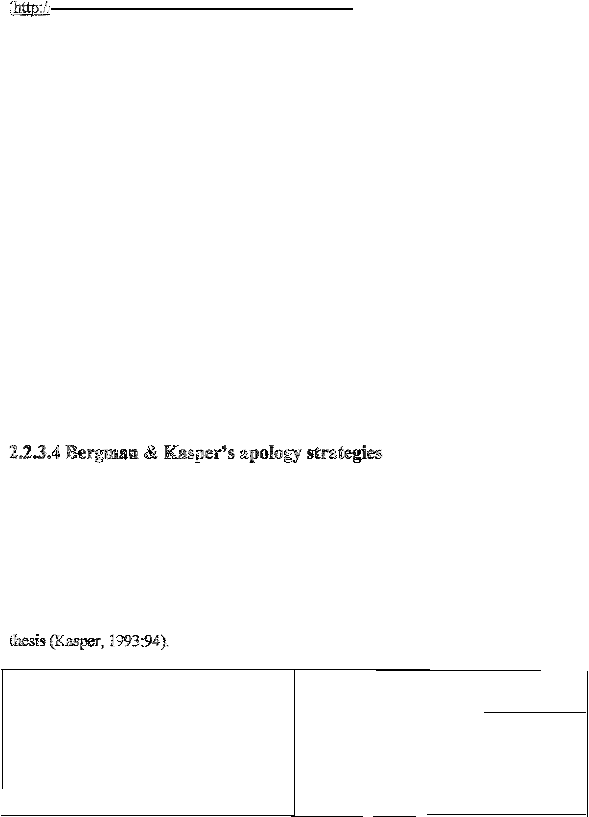
strategies
is
influenced
more
greatly
by
cultural
differences
than
gender.
Furti ermore,
Vollmer and Olshtllil
(1989)
researched
apology realization
by
German
focusing
on
the
relationship
between
the
patterns
of
apology
!lnd
social/
situational parameters. They fa!lnd out that the subjects
used. IFID and taking
respol'sibiHty
in
rather
!rigpercentages and
t.!w
use
of
intensification
"1\tas
related
to
the
social
parar!!eter
i.e.
t_he
the
status
of
t.he
speaker, the
more
he/she used
inu ns:'fiers
(ibid)
Al1to!l1er
researcher
would
be liolmes.
She
investigated the
differe!lCeS
between
male a."lrl fe .nale in expressing apolog;y and
fomd
that
women tend
to
apologize
more
than
men
did
especially
for
tt'le lr....arers
equa1 power
and
female
friends
whilst
men apologized
to women
of diff-erent status. (ibid)
J1,1zre
L.
Bergrrum
and
Gabrielle
Kasper SJ.-e two
of
many
researchers
who
are
intcrest.ed
in
investigating apology
expression.
They
conducted study
apoiogy
expression
among
the Thai and
Araerica English. They
used
Dialog
Construction
(DC)
tc
obt.ain data
and.
it vv-as coded
into
the following
categories
which 1 use them too in my
Strategies
Description
1. !JFID (IHocutionary Force
Ir.dicating
i
v
·
1
term. to p-:..,.
9
Device)
act
L'l
t!ris sense, the
expression
such as
"'I'm
sony "
''"Fm
d.'',"''I
arm1ogize'
are regarded
as IFID
L